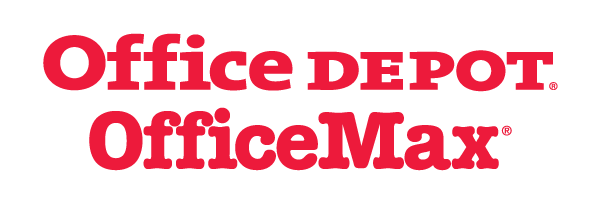 |
||||||
| Archive | Subscribe | Printer Friendly | Send to a Friend | www.beautyschools.org | ||||||
|
What's Hot

Resource page AACS is here for you with a comprehensive coronavirus resource page that will be updated as new information comes in. Click here from the Centers for Disease Control, World Health Organization, Small Business Administration, U.S. Department of Education, accreditors, distance learning educators and more.
Member Benefits
 Prescription RX card benefit
 OfficeMax member benefit GRC News
Federal Updates U.S. Congress
House Democrats on Monday evening rolled out a sweeping $2.5 trillion coronavirus stimulus package, H.R. 6379, that would provide at least $10,000 worth of student loan forgiveness for each borrower and roughly $60 billion in emergency assistance for education. The proposal comes as Democrats have said that the Senate Republican stimulus bill, which suspends payments on federally held student loans for six months without interest, doesn’t go far enough to provide assistance to the nation’s 45 million student loan borrowers. Under the House plan, federal student loan borrowers would have their monthly payments during the coronavirus national emergency canceled by the Education Department with a guarantee that they receive at least $10,000 worth of loan forgiveness on their federal loans.
U.S. Department of Education March 19, 2020 – The Department is proposing an extension of the information collection system titled the Federal Direct Loan Program and Federal Family Education Loan Program Teacher Loan Forgiveness Forms. The Teacher Loan Forgiveness (TLF) Application serves as the means by which an eligible Direct Loan or FFEL program borrower who has completed five consecutive years of qualifying teaching service applies for forgiveness of up to $5,000 or up to $17,500 of his or her eligible loans.
March 20, 2020 – The Department published a press release announcing that the office of Federal Student Aid is executing on President Trump’s promise to provide student loan relief to tens of millions of borrowers during the COVID-19 national emergency. All borrowers with federally held student loans will automatically have their interest rates set to 0% for a period of at least 60 days. In addition, each of these borrowers will have the option to suspend their payments for at least two months to allow them greater flexibility during the national emergency. This will allow borrowers to temporarily stop their payments without worrying about accruing interest.
In an update to the Department’s March 5, 2020 electronic announcement, the Department released additional guidance related to COVID-19 interruptions to address concerns with enrollment and other issues. Below are two key sections of the guidance:
Institutions Eligible for Regulatory Flexibility (1) In regard to students who have not yet enrolled, the Department extends guidance flexibility to students who enroll in payment periods that begin on or before June 1, 2020 · Will continue to monitor situation and extend timeframe if appropriate
Clock Hour Programs- Online Format (1) Institution offering clock hour program in distance education format must ensure that each clock hour of instruction is supervised by qualified institutional personnel · Instructor can complete a student’s timesheet to include clock hours earned in a distance education format, but the hours must be based on data or instructor’s own knowledge that the student was academically engaged for at least 50 minutes out of each clock hour that is recorded
The Department announced that it has released new information clarifying that federal law should not be used to prevent schools from offering distance learning opportunities to all students, including students with disabilities. This new resource from the Office for Civil Rights (OCR) and the Office of Special Education and Rehabilitative Services (OSERS) explains that as a school district takes necessary steps to address the health, safety, and well-being of all its students and staff, educators can use distance learning opportunities to serve all students. As the fact sheet states, schools “… should not opt to close or decline to provide distance instruction, at the expense of students, to address matters pertaining to services for students with disabilities. Rather, school systems must make local decisions that take into consideration the health, safety, and well-being of all their students and staff.”
U.S. Secretary of Education Betsy DeVos announced that students impacted by school closures due to the coronavirus (COVID-19) pandemic can bypass standardized testing for the 2019-2020 school year. Upon a proper request, the Department will grant a waiver to any state that is unable to assess its students due to the ongoing national emergency, providing relief from federally mandated testing requirements for this school year.
In a notice published in the Federal Register, the Department proposed an extension of the Request for Title IV Reimbursement or Heightened Cash Monitoring 2 (HCM2) information collection system. The collection of this information is needed in order for the Payment Analysts in Federal Student Aid, an office of the U. S. Department of Education, to review and process the institutional payment request for Title IV funds.
U.S. Department of Veterans’ Affairs
March 22, 2020 – The Department of Veterans’ Affairs published a press release stating that “President Trump signed into law S. 3503, March 21, which will enable the Department of Veterans Affairs (VA) to continue providing the same level of education benefits to students having to take courses online due to the coronavirus (COVID-19) outbreak. The law gives VA temporary authority to continue GI Bill payments uninterrupted in the event of national emergencies, allowing for continued payment of benefits even if the program has changed from resident training to online training. Thanks to the law, GI Bill students will continue receiving the same monthly housing allowance payments they received for resident training until Dec. 21, or until the school resumes in-person classes.”
U.S. Congress – Newly Introduced Legislation of Note
H.R.6379 – Take Responsibility for Workers and Families Act
H.R.6363 – To amend the Higher Education Act of 1965 to halt collection of certain student loans, and for other purposes. a. Status: Referred to House Committee on Education and Labor, 3/23/20
H.R.6322 – To make certain improvements in the educational assistance benefits under the laws administered by the Secretary of Veterans Affairs in the case of changes to courses of education by reason of emergency situations, and for other purposes. a. Status: Referred to House Committee on Veterans’ Affairs, 3/23/20
H.R.6321 – To provide financial protections and assistance for America's consumers, States, businesses, and vulnerable populations during the COVID-19 emergency and to recover from the emergency. a. Status: Referred to the Committee on Financial Services, and in addition to the Committees on Ways and Means, Education and Labor, Small Business, the Judiciary, and Agriculture, 3/23/20
H.R.6316 – To provide relief for Federal and private student loan borrowers during the COVID-19 pandemic, and for other purposes. a. Status: Referred to the Committee on Education and Labor, and in addition to the Committees on Financial Services, and Ways and Means, 3/23/20
S.3556 – A bill to amend the Higher Education Act of 1965 to provide for deferral of loan repayment for graduates during the period of the coronavirus. a. Status: Referred to Senate HELP Committee, 3/20/20
S.3543 – A bill to amend the public service loan forgiveness program under the Higher Education Act of 1965 to waive the requirement that a borrower make a monthly payment during a month for which there is a qualifying emergency in the State in which the borrower is employed. a. Status: Referred to Senate HELP Committee, 3/19/20
S.3503 – A bill to authorize the Secretary of Veterans Affairs to treat certain programs of education converted to distance learning by reason of emergencies and health-related situations in the same manner as programs of education pursued at educational institutions, and for other purposes. a. Status: Became Public Law No.: 116-128
State update COVID-19 Disrupts State Legislative Activity
The last full week of March finds state legislative activity severely disrupted by the ongoing Coronavirus (COVID-19) outbreak. While 24 states have suspended their 2020 legislative sessions or adjourned early due to COVID-19, this week still finds nine state legislatures actively meeting. Click here to find the current status of your state’s legislature. AACS will, of course, continue to keep you apprised of the latest state developments of interest to member schools.
In Kentucky, the House Licensing, Occupations, & Admin Regs Committee favorably reported a bill last week that would replace the state’s definition of “blow dry services” with a definition of "shampoo and style services" that “means beautifying, cleaning, or arranging the hair of an individual for consideration only at a limited beauty salon.” A license to provide shampoo and style services will require 300-hours of instruction – which is a 150-hour decrease from the current 450-hour blow drying license. As previously reported, SB 177 also strikes current law requiring instruction at a cosmetology, esthetics or nail school “to be given within an uninterrupted period with not more than eight (8) hours nor less than four (4) hours of instruction a day, exclusive of Sundays.” The bill is currently pending on the House floor where two amendments – that would retain the Senate-passed language but modify Board of Ophthalmic Dispensers licensing fees – have been filed.
Colorado’s Senate voted 30 to 0 last week to send HB 1280 to Governor Jared Polis (D). As previously reported, the bill allows the Department of Higher Education to collect the data necessary to calculate ROI for degree and certificates offered by private occupational schools, by public and private out-of-state higher education institutions, or by seminary or religious training institutions.
The text of the Kentucky and Colorado bills can be found in AACS’ Bill Tracking Portal.
Please do not hesitate to contact Brian Newman at bnewman@abingdonstrategies.com or by phone at 202-491-5254 with comments or questions.
COVID-19 Resources
AACS Coronavirus Resource Center
State and Local Government Responses to Covid-19
PBA’s COVID-19 Information Page
Upcoming State Legislative Hearing March 31, 2020 – Louisiana House Commerce Committee Hearing on HB 660 and HB 695 Louisiana legislature is tentatively scheduled to reconvene on March 31, 2020. HB 660 would provide for the licensure of advanced estheticians. HB 695 revises certain licensure fees and provides that assessed fees are nonrefundable.
State Bill Enactment Idaho HB 424 – Effective March 18, 2020 The Act eliminates the state’s 900-hour haircutter license, creates a charitable work exception for up to 12 days per year, and add an exemption allowing theatrical and visual arts participants to perform barber-styling or cosmetology services. The measure also states that “all apprenticeships must be completed within three (3) years from the time of commencement, unless an extension is approved by the board for good cause. The specific time allowed for each apprenticeship shall be set by board |
||||||








